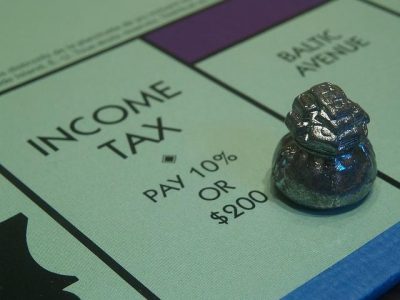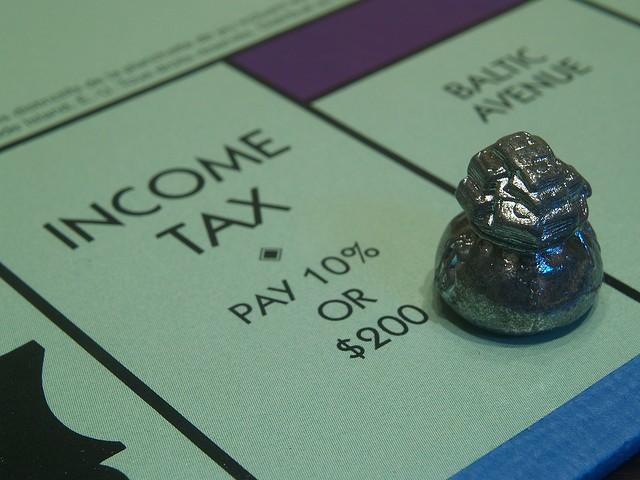
flickr/jpconstantineau
Cross-posted from The American Prospect’s website.
In February 1913, exactly a century ago, the Sixteenth Amendment gave Congress a constitutional green light to levy a federal tax on income. Later that same year, lawmakers made good on that opportunity. An income tax has been part of the federal tax code ever since.
So what can we learn, as progressives, from this first century of income taxation?
Lesson One
Steeply graduated income tax rates can help societies do big things.
A half-century ago, America’s federal income tax rates rose steadily—and quite steeply—by income level, with 24 tax brackets in all. On income roughly between $32,000 and $64,000, in today’s dollars, couples in the 1950s faced a 22 percent tax rate. On income that today would equal between $500,000 and $600,000, affluent Americans faced a tax rate of 65 percent. The highest 1950s tax rate, 91 percent, fell on annual income that would today exceed $3.2 million.
Today, our federal tax rates rise much less steeply. The current top rate? The “fiscal-cliff battle” earlier this winter raised the top federal rate on individual income over $400,000 from 35 to 39.6 percent, less than half the 91 percent top rate in effect through the Eisenhower years.
Those high tax rates in the middle of the 20th century made a huge difference. The revenue these tax rates generated funded new government programs like the justly celebrated G.I. Bill. Within a single generation, the United States went from a nation two-thirds poor to a nation two-thirds middle class. Americans saw the difference that government can make—and felt that difference personally.
Most Americans today, by contrast, don’t expect much from their government. And for good reason. Most of us around today haven’t seen our government undertake any major new initiative improving the quality of the lives we lead. In this low-expectations political environment, conservative lawmakers demand endlessly lower income taxes for everybody, at every opportunity, and mainstream liberals dare not even hint at raising taxes on “middle class” incomes under $250,000.
But back in our steeply graduated tax-rate past, politicians did dare talk about higher taxes, and middle class Americans didn’t much mind paying those taxes—for two reasons. They saw big results from the tax dollars they paid. They also knew that America’s wealthiest were sacrificing at tax time, too.
We don’t do big things in America anymore. But we could, if we made paying taxes politically palatable again. Steeply graduated income tax rates helped work that magic a half-century ago. They could work that magic again.
Read the rest of this article on The American Prospect’s website.
